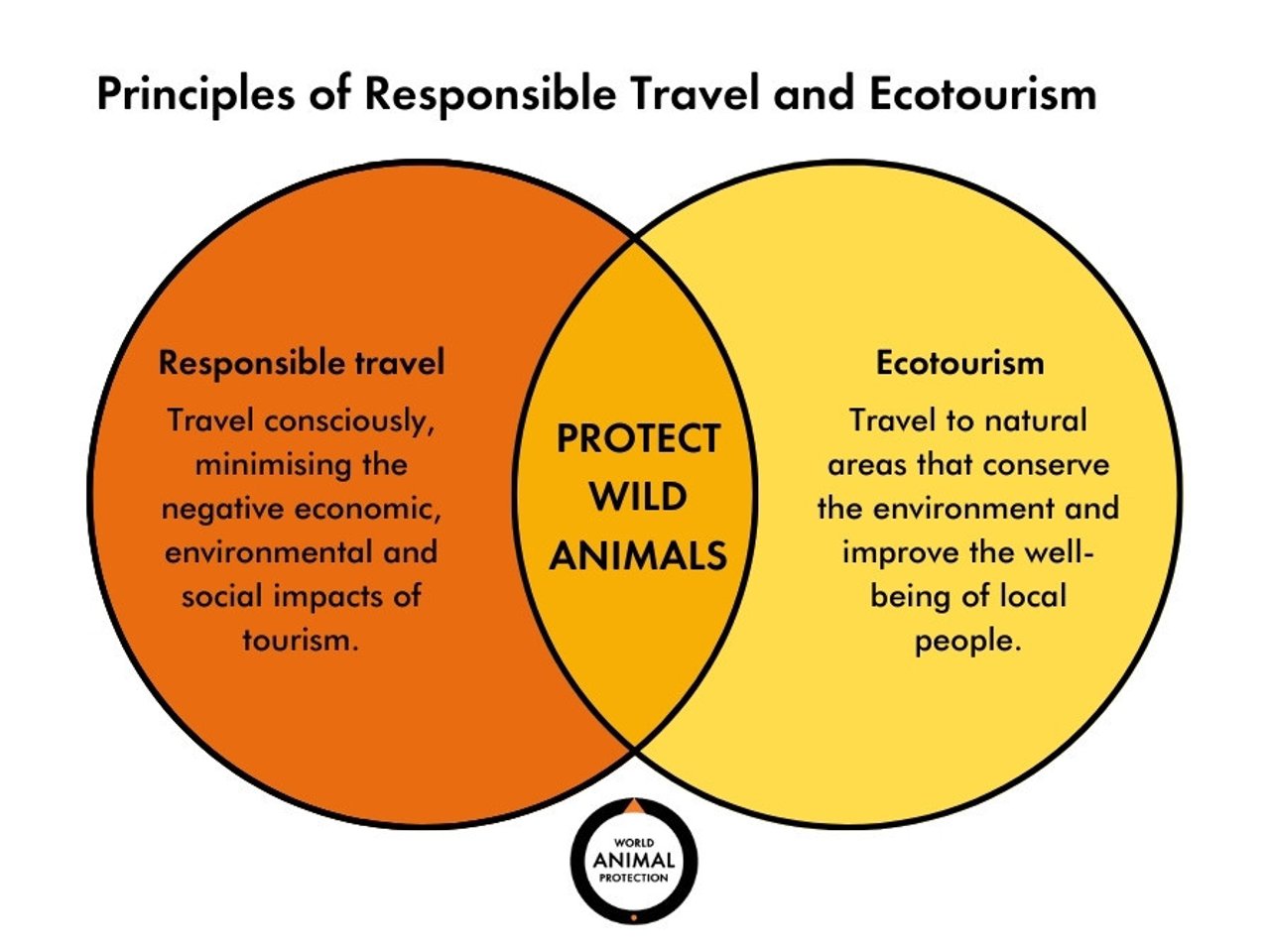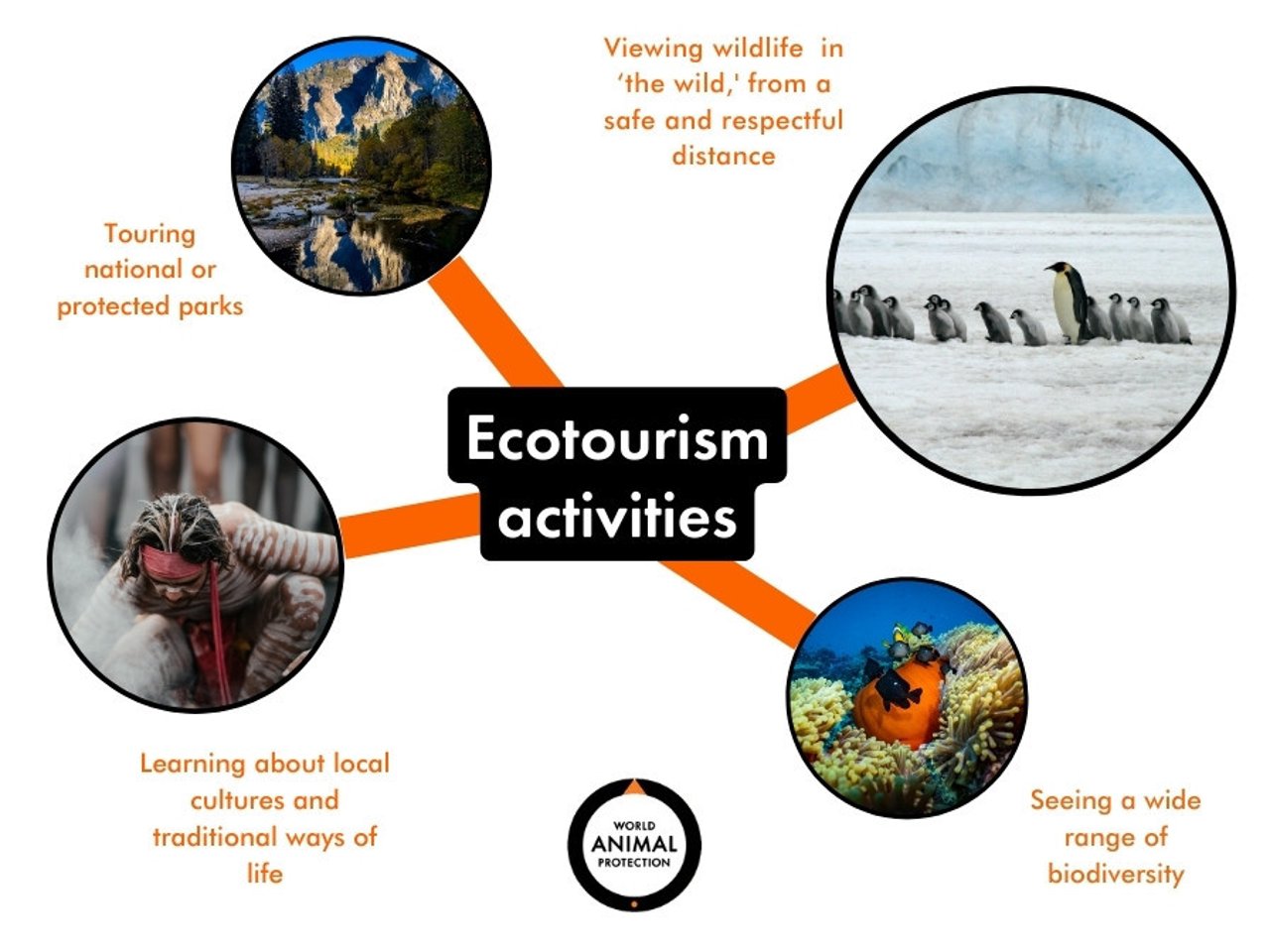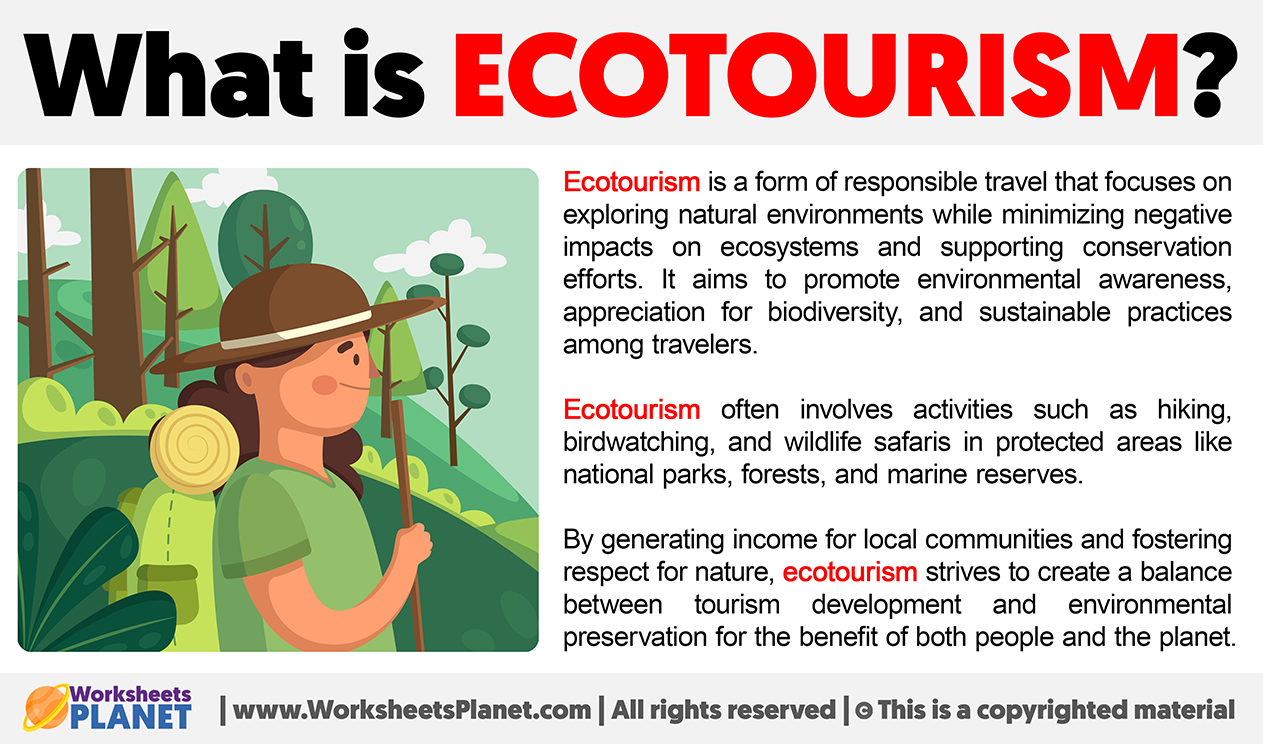“`html
Eco-tourism: A Deep Dive into Sustainable Travel
body {
font-family: sans-serif;
line-height: 1.6;
margin: 20px;
}
h1, h2, h3 {
color: #333;
}
h2 {
border-bottom: 1px solid #eee;
padding-bottom: 5px;
margin-top: 30px;
}
h3 {
margin-top: 20px;
font-size: 1.1em;
}
p {
margin-bottom: 15px;
}
Eco-Tourism: A Deep Dive into Sustainable Travel

Eco-tourism, a portmanteau of “ecology” and “tourism,” represents a paradigm shift in how we perceive and engage with travel. It’s more than just visiting beautiful natural landscapes; it’s about fostering a responsible and sustainable relationship between travelers and the environment. This article delves into the core meaning of eco-tourism, exploring its principles, benefits, challenges, and future.
Understanding the Essence of Eco-Tourism
At its heart, eco-tourism is defined by its commitment to minimizing the negative impacts of tourism on the environment and local communities. It’s about promoting conservation, respecting local cultures, and ensuring that tourism benefits the people and places visited. Essentially, it’s a form of travel that prioritizes sustainability and ethical considerations.
Key Principles of Eco-Tourism
Several fundamental principles guide eco-tourism practices:
Minimizing Environmental Impact

This involves reducing carbon footprints, conserving resources, and preventing pollution. Eco-tourism operations strive to use renewable energy, manage waste responsibly, and minimize their ecological footprint.
Respecting Local Cultures
Eco-tourism encourages travelers to learn about and appreciate the cultural heritage of the places they visit. This includes respecting local customs, traditions, and knowledge, and supporting local artisans and businesses.
Benefiting Local Communities

Eco-tourism should generate economic opportunities for local communities, providing them with a stake in conservation efforts. This can involve employing local guides, using local accommodations, and purchasing locally produced goods.
Promoting Conservation
Eco-tourism plays a crucial role in raising awareness about environmental issues and supporting conservation initiatives. This can involve funding research, participating in restoration projects, and educating travelers about the importance of biodiversity.
Providing Educational Experiences
Eco-tourism offers travelers opportunities to learn about the natural world and the challenges facing it. This can involve guided tours, educational programs, and hands-on experiences that foster a deeper understanding of ecosystems and conservation.
The Benefits of Eco-Tourism
Eco-tourism offers a multitude of benefits, both for the environment and for travelers:
Environmental Conservation
By promoting sustainable practices and generating funds for conservation, eco-tourism helps protect natural habitats and biodiversity.
Economic Development
Eco-tourism can create jobs and generate income for local communities, particularly in rural and remote areas.
Cultural Preservation
By encouraging respect for local cultures, eco-tourism helps preserve traditional knowledge and practices.
Educational Opportunities
Eco-tourism provides travelers with unique opportunities to learn about the natural world and the challenges facing it, fostering a greater appreciation for conservation.
Personal Growth
Eco-tourism can be a transformative experience, offering travelers opportunities to connect with nature, learn new skills, and broaden their perspectives.
Challenges Facing Eco-Tourism
Despite its many benefits, eco-tourism faces several challenges:
Greenwashing
Some tourism operators may falsely claim to be eco-friendly to attract environmentally conscious travelers, a practice known as “greenwashing.”
Lack of Regulation
In some areas, there may be a lack of regulations and standards for eco-tourism, leading to inconsistent practices and potential harm to the environment.
Over-tourism
Even eco-tourism destinations can suffer from over-tourism, leading to environmental degradation and cultural disruption.
Balancing Conservation and Development
Finding the right balance between conservation and economic development can be challenging, particularly in developing countries.
Ensuring Equitable Benefits
Ensuring that the benefits of eco-tourism reach local communities and are distributed equitably can be difficult.
The Future of Eco-Tourism
The future of eco-tourism depends on addressing these challenges and embracing a more responsible and sustainable approach to travel. This involves:
Promoting Responsible Travel Practices
Travelers need to be more aware of their environmental impact and make responsible choices, such as choosing eco-friendly accommodations, minimizing waste, and supporting local businesses.
Strengthening Regulations and Standards
Governments and industry organizations need to develop and enforce stricter regulations and standards for eco-tourism to ensure that it lives up to its promises.
Investing in Sustainable Infrastructure
Investing in sustainable infrastructure, such as renewable energy, waste management systems, and eco-friendly transportation, is crucial for reducing the environmental impact of tourism.
Empowering Local Communities
Empowering local communities to participate in and benefit from eco-tourism is essential for ensuring its long-term sustainability.
Leveraging Technology
Technology can play a vital role in promoting eco-tourism, such as through apps that provide information on sustainable travel options, carbon offsetting tools, and virtual tours of natural areas.
Practical Tips for Eco-Tourists
If you’re interested in becoming an eco-tourist, here are some practical tips:
Research Your Destination
Before you travel, research your destination and learn about its natural and cultural heritage. Choose eco-friendly accommodations and tour operators that are committed to sustainability.
Minimize Your Environmental Impact
Reduce your carbon footprint by choosing sustainable transportation options, such as walking, cycling, or public transport. Conserve water and energy, and minimize waste.
Respect Local Cultures
Learn about local customs and traditions, and dress and behave respectfully. Support local businesses and artisans, and avoid patronizing businesses that exploit local communities.
Choose Responsible Tour Operators
Select tour operators that are certified by reputable eco-tourism organizations and that demonstrate a commitment to sustainability.
Engage in Conservation Activities
Participate in conservation activities, such as tree planting, beach cleanups, or wildlife monitoring. Donate to local conservation organizations.
Educate Others
Share your eco-tourism experiences with others and encourage them to adopt sustainable travel practices.
Conclusion
Eco-tourism offers a powerful model for sustainable travel, one that benefits both the environment and local communities. By embracing responsible practices and supporting ethical tourism operators, we can help ensure that future generations can enjoy the beauty and wonder of our planet. Eco-tourism is not just a trend; it’s a necessity for a sustainable future. It requires conscious effort from travelers, businesses, and governments to uphold its principles and ensure its positive impact. As we move forward, the emphasis should be on creating a tourism industry that not only minimizes its negative impacts but actively contributes to the well-being of the planet and its inhabitants. By understanding and embracing the true meaning of eco-tourism, we can all play a part in creating a more sustainable and equitable world.
“`



